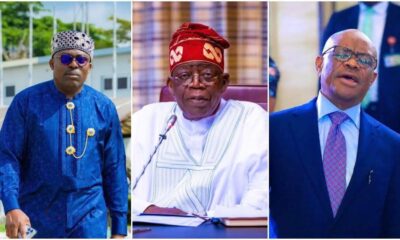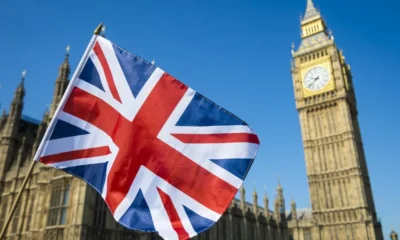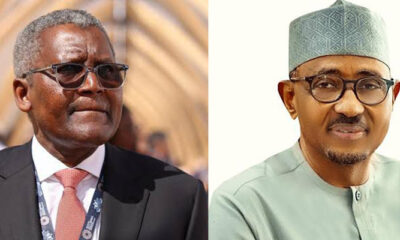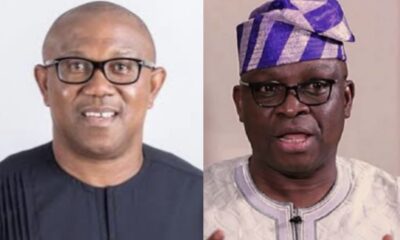U.S. Urges Citizens To Leave Venezuela, Warns Armed Militias Have Set Up Roadblocks To Hunt Americans
The U.S. Embassy has warned that the security situation in Venezuela remains highly unstable, urging all U.S. citizens not to travel to the country and to depart immediately if already there.
In a January 10, 2026 security alert, the embassy reiterated longstanding travel warnings dating back to 2019, when the U.S. fully withdrew diplomatic personnel from its Caracas mission and suspended all consular services.
The advisory highlights reports of armed militia groups known as “colectivos” setting up roadblocks and searching vehicles for evidence of U.S. citizenship or support for the United States, urging citizens to remain vigilant and take precautions while traveling by road.
“Do not travel to Venezuela. U.S. citizens in Venezuela should take precautions to ensure their safety. All U.S. citizens in Venezuela are advised to leave Venezuela as soon as they feel it is safe to do so,” the travel advisory said in part.
Venezuela continues to be classified at the highest Travel Advisory level (Level 4: Do Not Travel) due to severe risks such as wrongful detention, torture, terrorism, kidnapping, arbitrary enforcement of laws, crime, civil unrest, and poor health infrastructure.
The embassy advised Americans still in Venezuela to check international flight schedules and leave as soon as safely possible, as commercial flights have resumed but seats may be limited.
It also urged them to establish multiple communication channels with family and friends outside the country and prepare contingency plans for emergency situations, since the U.S. government is currently unable to provide routine or emergency assistance.
Americans are also encouraged to enroll in the Smart Traveler Enrollment Program (STEP) to receive the latest security updates.
The alert comes amid broader concerns about public safety and ongoing instability in Venezuela, including intermittent power and utility outages across the country.
In early January 2026, a major escalation in U.S. foreign policy occurred under the administration of President Donald Trump. On January 3, 2026, the U.S. military launched a targeted operation in Venezuela that resulted in the abduction of President Nicolás Maduro and his wife, Cilia Flores.
In the early hours of January 3, more than 200 U.S. Special Operations forces conducted a pre-dawn raid in Caracas. The mission, codenamed Operation Absolute Resolve, targeted several locations, primarily the Fort Tiuna military complex.
U.S. forces reportedly “dragged” Maduro and Flores from their residence within the complex. They were transported to the USS Iwo Jima and subsequently flown to New York City.
While no U.S. personnel were killed, the raid resulted in significant casualties. Reports indicate that at least dozens of Venezuelan security officers and Cuban special forces, acting as Maduro’s bodyguards, were killed.
Following the capture, Venezuelan Vice President Delcy Rodríguez was sworn in as acting president by the National Assembly, denouncing the operation as a “kidnapping” and a violation of sovereignty.
The public justification for the operation was framed as a law enforcement action. Upon their arrival in New York, an indictment was unsealed charging Maduro and Flores with narco-terrorism conspiracy, cocaine importation conspiracy and weapons charges.
The U.S. Department of Justice alleged that Maduro had led a “cocaine-fueled” government for decades, partnering with cartels like the Sinaloa Cartel and the FARC to flood the U.S. with drugs.
On January 5, both Maduro and his wife pleaded not guilty in a Manhattan federal court.
Once the capture was secured, the rhetoric from the Trump administration began to shift from strictly criminal charges to the geopolitical and economic control of Venezuela’s natural resources.
President Trump stated shortly after the raid that the U.S. would “run the country” until a transition of power occurred.
Within days, the administration began organizing meetings with U.S. oil and gas executives to discuss rebuilding Venezuela’s energy sector.
The U.S. Department of Energy indicated it would “selectively roll back” sanctions to enable the sale of Venezuelan crude to global markets, with Secretary of State Marco Rubio suggesting an “oil quarantine” to exert leverage.
Critics and international observers noted that while the war on drugs provided the legal pretext for the “extraction,” the subsequent focus on oil reserves suggested that securing energy assets and regional influence were primary strategic goals.
FOLLOW US ON:
FACEBOOK
TWITTER
PINTEREST
TIKTOK
YOUTUBE
LINKEDIN
TUMBLR
INSTAGRAM

 Politics22 hours ago
Politics22 hours ago
 News22 hours ago
News22 hours ago
 News22 hours ago
News22 hours ago
 Business22 hours ago
Business22 hours ago
 Politics21 hours ago
Politics21 hours ago
 Politics22 hours ago
Politics22 hours ago
 News6 minutes ago
News6 minutes ago

























